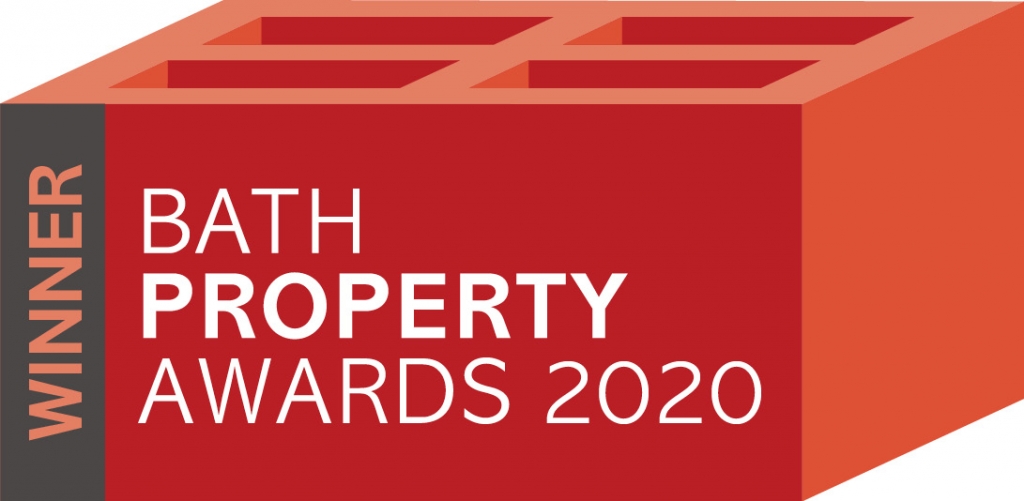Bath Property Awards 2020
Winner Bath Property Awards 2020: Rising Star
“Never waste a good crisis”
Despite the Covid-19 pandemic, BiBO took the opportunity to rethink the business – expanding into other fields to help us diversify and keep things interesting!

Bath Property Awards 2020 Rising Star
Describe your business / project / organisation
BiBO is a group of companies working together to improve access into property and construction related fields.
What does your business / project / organisation aim to do?
BiBO is challenging business norms across architecture and estate agency, with future plans to grow into construction. The property industry is exclusive, notoriously slow to respond to consumer trends (compared to tech) often accused of being 10 or 20 years “behind”. Our business is designed to interrogate the causes of the construction industry’s limitations, looking at everything from the supply chain of skills and talent, training and education, cross disciplinary collaboration, engaging with the public, and above all – supporting, retaining, and promoting a diverse workforce.
We want a wider cross-section of society to materially contribute to the decision-making processes of development. Over time, we want to work with other organisations to educate children and adults on the various aspects of “placemaking” covering finance/investment, design, management, and building to help demystify the industry. By articulating the value-addedness of each stage and team member, we aim to help de-risk development, which we believe is the underlying issue behind big themes such as the “race to the bottom” and poor mental health in construction.
What is unique, innovative and distinctive about your business / project / organisation?
Day-to-day our work consists of “typical” business activity, delivering the type of services broadly expected from architects and estate agents. Where we are unique is our business practice adopts agile working practices that are more common in tech, but typically absent from the property industry. The objective is to support staff to pursue complementary interests within the working week that help them become their best selves at work. Put simply, while our competitors might advertise “client focussed service”, we are “staff focussed” on the basis that only through happy and fulfilled staffing, will our clients receive a pro-active, engaged and enthusiastic service.
For example, our estate agency is positioned to help property owners think more tactically about their investments – seeking to understand the objectives behind a sale or letting rather than simply offering a sale or letting service.
We are truly collaborative, forming links wherever we can both between ourselves and our acquaintances – particularly other SMMEs – which the new planning white paper have identified as critical to forming a resilient future built environment.
What makes the last twelve months stand-out? What are your key achievements?
Churchill’s “Never waste a good crisis” quote came to mind on March 23rd [2020]. During the first lockdown we took a strategic decision to grow our business, diversify our service offering and position ourselves to become more resilient in future by placing ourselves at different points within the property and construction supply chain.
First we founded a holding company – BiBO Group Ltd in May 2020, a new company structure that seeks to become a self-financing social enterprise. The objective is to reduce standing time (eg. non fee earning) by overlapping overheads and expenses – including marketing/business development – and use the surplus resource to fund projects, which could be anything from high quality building development, innovative research, to public outreach programmes. This represents our most versatile response to an overall ambition to ‘keep up’ with faster moving markets such as retail and technology.
Second, we founded a subsidiary – BiBO Property Ltd in June 2020 – a new estate agency partnering with an ambitious and talented young person who had faced exclusion from the property industry for its lack of flexibility. This company is evolving to focus on grass-roots regeneration through the sourcing of investment property coupled with creative financial strategies to help broaden diversity in the “developer” sector. BiBO Property also promotes high-quality rental accommodation, operating under the assumption that most people would love to live in a “grand designs” home but can rarely afford it. This is part of our strategy to understand, learn from and educate the “end-user” market in recognition that ultimately it is consumers voting with their wallets who have the power to change the nature of products on offer. For example, there is hesitance to adopt Passivhaus over concern that consumers won’t pay a premium. Yet, this is the type of fundamental and widespread shift at a domestic/household level required to achieve UK Government carbon targets.
We have also proudly sponsored and supported another employee towards her successful qualification as an architect as of November 2020. Most small start-up architectural practices do not commit to this type of expense, but as diversity in architecture was central to the founding of BiBO Studio (2018) we are extremely proud to have made this contribution and consider it a testament to our commitment and willingness to invest in “being the change we want to see”.
Although we have needed to make use of the JRS our key achievement has been not only maintaining our business, paying every bill, and keeping all of our staff employed but also giving each of us a very real source of optimism for the future of property – which we are choosing to disrupt and redefine.
How does the business / project / organisation contribute to and benefit the local area?
BiBO has always proudly chosen to lead by example and has created its primary premises in the heart of Trowbridge. As architects and urban designers, we are mindful that our counterparts often expect investors and clients to put their money into places in need of regeneration while architects themselves typically occupy space in already affluent areas.
By choosing to work in a place where property prices are suppressed, with low overheads ourselves, we have greater scope to use our profit margin for reinvestment in the town. To date, this is manifesting itself as an emerging programme of education and engagement events aimed at upskilling the public – including the teaching of STEM subjects to young people and supporting the SME business community.
Day to day, by simply occupying a commercial space within Trowbridge (which has seen its High Street offer decimated) we are physically contributing to the activation of streets, and “keeping the lights on”. We are gradually procuring our office fit-out from local shops and suppliers, and buying a few lunches and cups of coffee from independent outlets.
Moving forward, we hope to use our connections within architecture and higher-education to help draw attention to Trowbridge and be integral to its ambition to become a trendy up-and-coming town
Please describe how you responded to the pandemic
As we were founded on agile working in response to poor diversity in architecture, the impact of the pandemic and lockdown was negligible to the running of the business. In this sense, we felt vindicated that by promoting flexibility we had inadvertently promoted resilience.
Our primary response to Covid however was not to worry about all the clients who were forced to cancel their projects, but rather turn our attention to the business strategies of clients who asked us to proceed. This was predominantly one client, Emily Estate – behind The Newt in Somerset – who we have since adopted as our business role models.
Our suggestion to the industry, both before the pandemic and now, was to place more emphasis on output/deliverables rather than time/presenteeism. Enable staff to manage their own time and working preferences by giving them laptops & mobiles and mutually agreeing in advance realistic deadlines. We still held our meetings, gathering at the park to share a picnic, and supported training.
Mental health and diversity statistics continue to be appalling in construction and property, issues that will still need to be addressed regardless of Covid-19, so we’ve continued to focus on this. The only thing we will be (and are) doing differently in response to Covid-19 is making a more sociable workspace. We like working from home, but we also like getting together – not in an office environment – but in an café/bar environment. So, we are bringing WFH and the café/bar to the office.


























